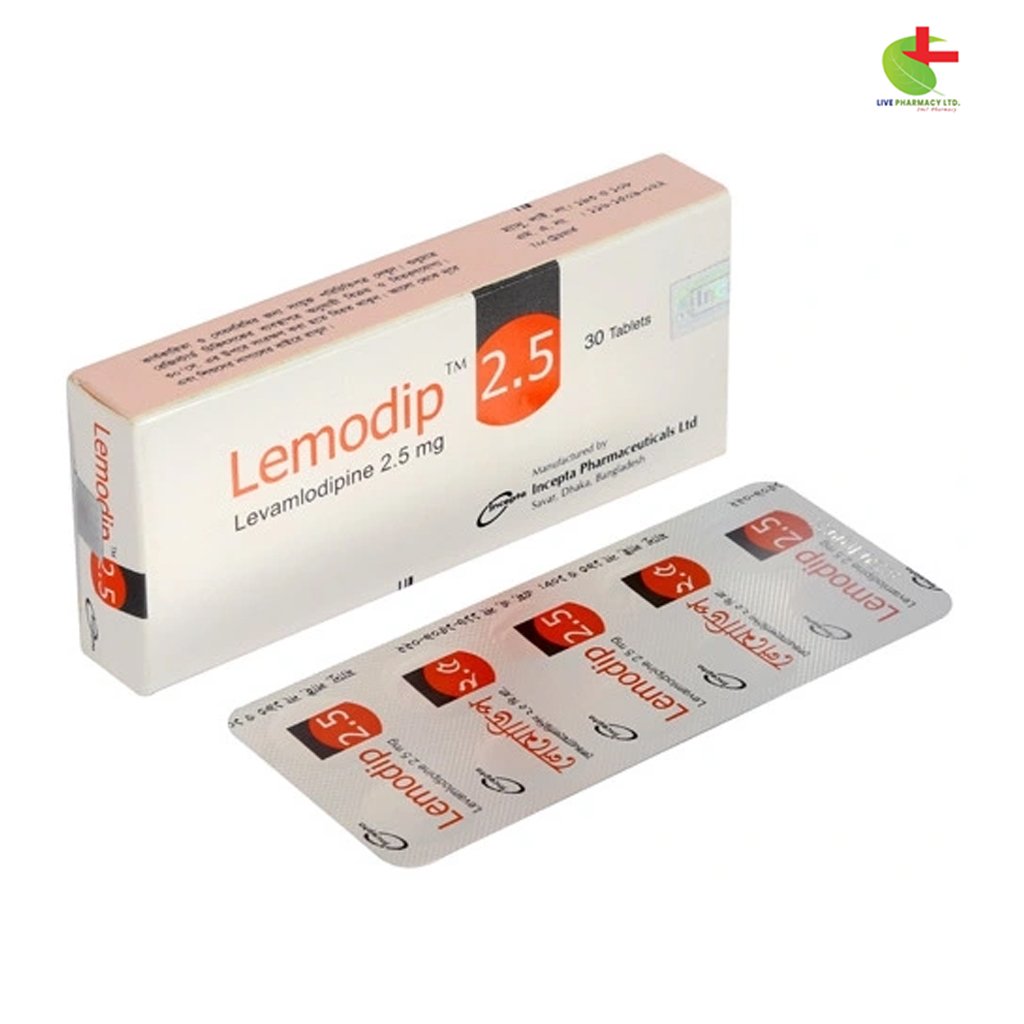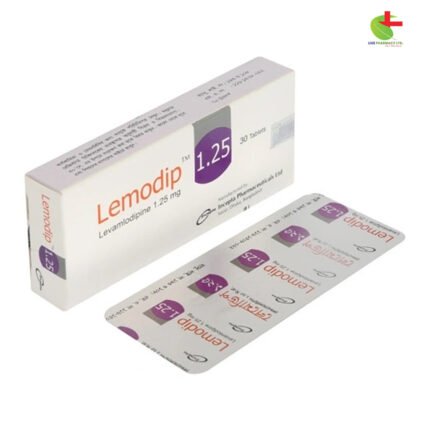Lemodip 2.5
70.00৳ Strip (10)
- Lemodip (Levamlodipine) is a calcium channel blocker used to treat hypertension by lowering blood pressure.
- It helps reduce the risk of cardiovascular events, including strokes and heart attacks.
- Lemodip works by relaxing blood vessels, making it easier for the heart to pump blood.
- Available in tablet form, it can be taken alone or with other antihypertensive medications for optimal results.
 Brand
Brand
|
Incepta Pharmaceuticals Ltd |
|---|---|
 Generics
Generics
|
Levamlodipine Maleate |
 Type
Type
|
Tablet |
Indications
Lemodip is a calcium channel blocker, commonly used alone or in combination with other antihypertensive medications to manage hypertension. By lowering blood pressure, it significantly reduces the risk of serious cardiovascular events, such as strokes and myocardial infarctions.
Pharmacology
Levamlodipine, the active component of Lemodip, is a dihydropyridine calcium antagonist. It works by inhibiting calcium ion influx into vascular smooth muscle and cardiac cells. This helps to lower blood pressure by relaxing blood vessels. Levamlodipine is the pharmacologically active isomer of amlodipine and has been shown to be more effective in reducing hypertension.
- Absorption: Levamlodipine has a Tmax of 6-12 hours and a bioavailability ranging from 64-90%. It is not significantly affected by food intake.
- Metabolism: Approximately 90% of Levamlodipine is metabolized into inactive metabolites, primarily via the CYP3A4 enzyme in the liver.
- Excretion: About 60% of Levamlodipine is eliminated through urine.
Dosage & Administration
- Recommended Dosage: Start with 2.5 mg of Levamlodipine once daily. The dosage can be increased up to 5 mg daily as needed, depending on blood pressure control.
- Elderly Patients: Starting dose for elderly patients or those with liver issues is 1.25 mg once daily.
- Pediatric Patients: Children aged 6-17 years typically receive 1.25 mg to 2.5 mg daily.
Drug Interactions
- CYP3A Inhibitors: Co-administration with CYP3A inhibitors may require a dosage reduction of Lemodip.
- Simvastatin: Amlodipine may increase the exposure to simvastatin, requiring dose adjustments.
- Immunosuppressants: Levamlodipine can increase the levels of cyclosporine or tacrolimus in the bloodstream.
Contraindications
Levamlodipine should not be used in patients who are allergic to amlodipine or other calcium channel blockers.
Side Effects
- Common Side Effects: Dizziness, difficulty breathing, reflex tachycardia, edema, abdominal pain.
- Less Common Side Effects: Diarrhea, back pain, headache, nausea, and fatigue.
Pregnancy & Lactation
- Pregnancy: Although animal studies show no adverse effects, Lemodip should only be used during pregnancy if clearly necessary.
- Lactation: No known effects on breastfeeding infants have been reported.
Precautions & Warnings
- Hypotension: Caution is advised in patients with aortic stenosis, as Lemodip may cause a drop in blood pressure.
- Angina or Myocardial Infarction: There is a risk of worsening angina or acute myocardial infarction, particularly in patients with coronary artery disease.
- Hepatic Impairment: Patients with liver disease should be closely monitored and dosages adjusted carefully.
Overdose Effects
Overdose can result in excessive peripheral vasodilation and significant hypotension, possibly accompanied by reflex tachycardia.
Therapeutic Class
- Calcium Channel Blockers: Used primarily for managing hypertension and angina.
Storage Conditions
Store in a cool, dry place, away from light and moisture. Keep out of reach of children.













Reviews
There are no reviews yet.